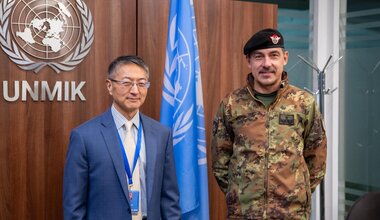UN Kosovo Youth Assembly: See young people as a resource – not just as poster hangers
Young people are more than just a resource base to help put up posters during election time – and should be taken seriously by Kosovo’s politicians. This message came from seasoned Kosovo member of parliament Ilir Deda, who spoke during a panel on the second day of the third annual United Nations Kosovo Youth Assembly.
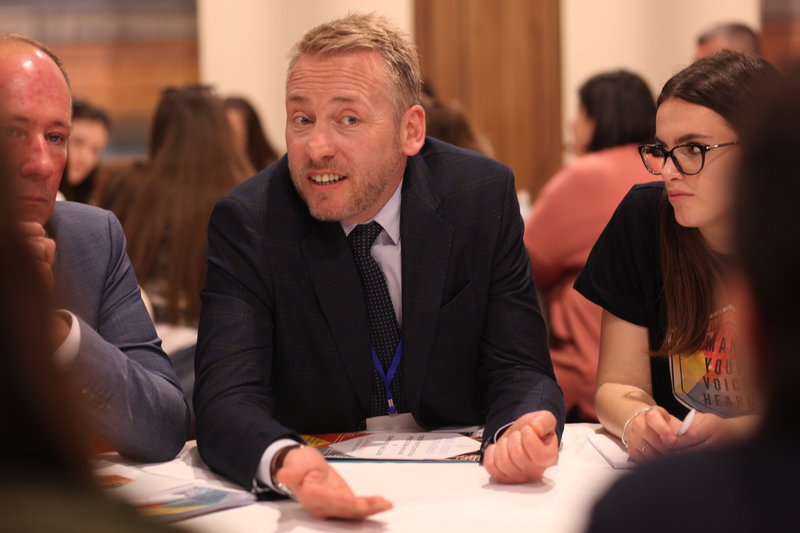
Deda spoke candidly with the more than 250 young people from across Kosovo’s different communities who gathered at Emerald Hotel in Pristina at the event on April 24 and 25. The 43-year-old politician, who was one of the youngest politicians in parliament when he was first elected five years ago, said Kosovo parliamentarians had a problem connecting with constituents – particularly younger constituents.
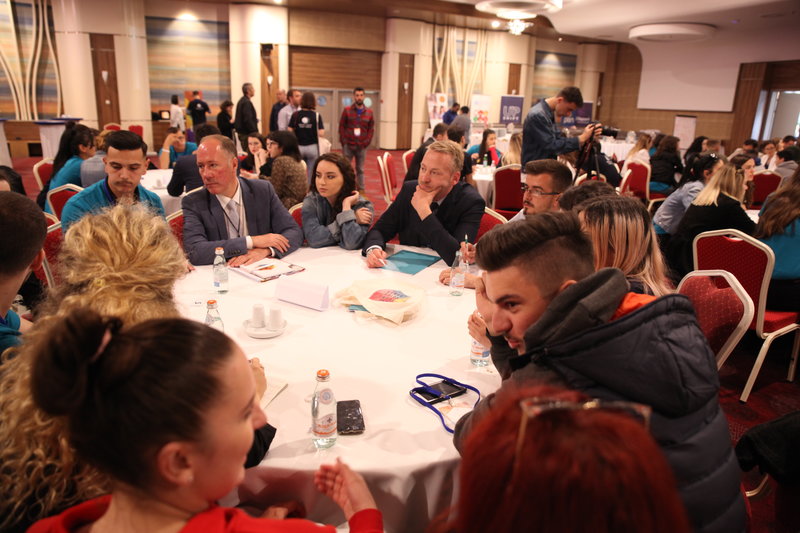
“Most people in politics see young people as people who are going to put up posters during elections and I don’t think that’s fair and I think young people shouldn’t accept to be the ones who go and put up posters because then we reduce you to the ones who serve – and it shouldn’t be like that. You should be united by a cause.”
Deda identified a misunderstanding between generations, with people – and politicians – becoming more settled as they grew older.
“When you’re younger you don’t even know what settled means and thank god you don’t – you are still trying to figure out who you are, what you want, what is your life going to be. You don’t have borders and older people want to put borders around you, so you say ‘yes’ or don’t say anything at all. And we cannot change anything if we continue like that.”
But he also called on young people to play their part in democracy by asking for a dialogue with elected representatives and explaining their needs.
“Demand accountability and responsibility by the ones who are elected and talk about you. It doesn’t matter that you’re not 18 yet, you have a right to a life and a good future.”
During the same panel, chaired by the Head of the UN Office in Belgrade Simona-Mirela Miculescu, the Regional Youth Cooperation Office’s Deputy Secretary General Fatos Mustafa talked about their mission to reverse the “brain drain” of young people leaving Kosovo and the Western Balkans. Instead, the idea of ‘regional mobility’ that would allow young people to challenge stereotypes by traveling and working in other Balkan and European countries for a time, was the model envisioned.
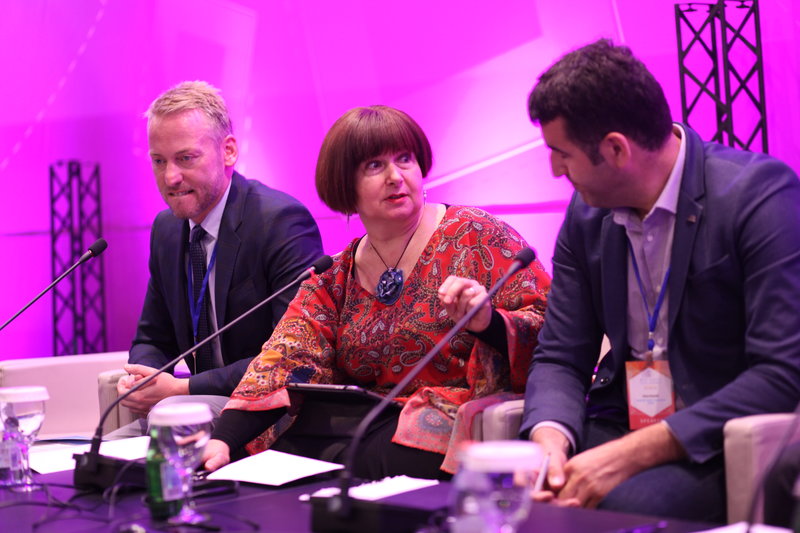
“We are eager to see people of the Western Balkans travel and be mobile to go to all countries…but not migrating there. How can we build the environment of also having young people of Europe coming here and contributing to this mobility.”
He also encouraged more young people to take part in the decision-making processes and prove they were the potential of a society – and not a problem.
UNICEF Social Policy Officer Dren Rexha talked about upcoming projects the UN agencies had to tackle certain issues in Kosovo. Kosovo was a post-conflict generation “fueled by conflict narratives” and mistrust in society, he said.
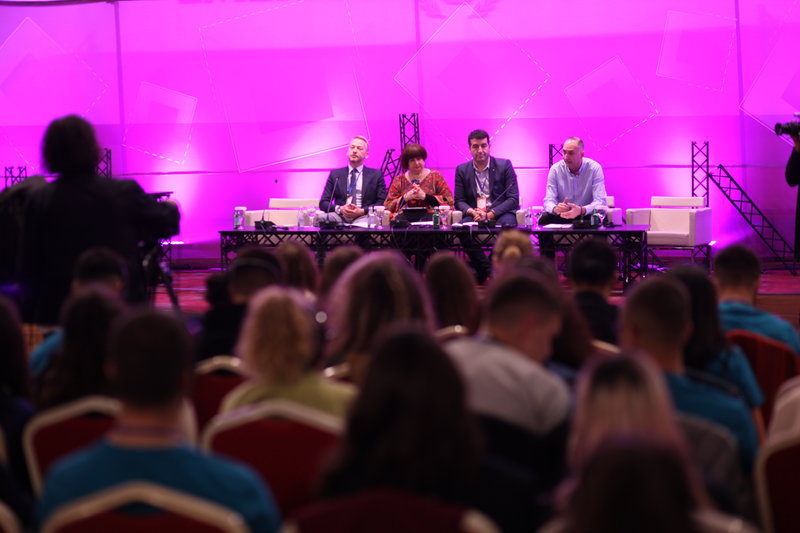
UNICEF, who were the co-hosts of the Youth Assembly, would be working to diffuse mistrust between young people from different communities, between young people and institutions and to create solutions and build capacities of young people and women as a tool of peace in an upcoming 18-month project where youngsters from different ethnic communities would come together.
“The problems are the same so why not address those problems together as young people”.
SEVEN TIPS FOR SUCCESS:
Head of the UN Office in Belgrade Simona-Mirela Miculescu, who moderated the panel, shared some useful thoughts with the gathered young people:
- When you approach decision-makers it’s less about you and more about them. Decision-makers care more about what makes them look good and not what makes you look good. Develop an understanding of what their priorities are; how is your idea going to bring this individual added value?
- Get noticed. I see a lot of excessive modesty, but you still need to learn to get noticed – in a good way, of course! You need to be able to stand out effectively. Find your way to get noticed.
- Learn one word: persistence. In your life, persistence is your key. You need to learn not to take anything personally and don't get discouraged after just trying once or twice.
- Know your stuff. There’s nothing worse than suggesting an idea, the idea being accepted and then you don’t have a clue how to follow it up.
- Have a Plan B. If you didn’t manage to get the person's attention the first time, then have another plan on standby. Be flexible.
- Deliver like a champion. You always have to learn how to deliver. How to make a pitch. If you don’t deliver your idea and your proposal in the best, most persuasive way, the results might be modest.
- Do your history homework. It is extremely important, especially in this region, to consider the past, the present and the future position of the society and also of the decision-maker who is leading it. If your idea or input has already been tried and has failed your decision-maker will not be impressed, let alone persuaded.
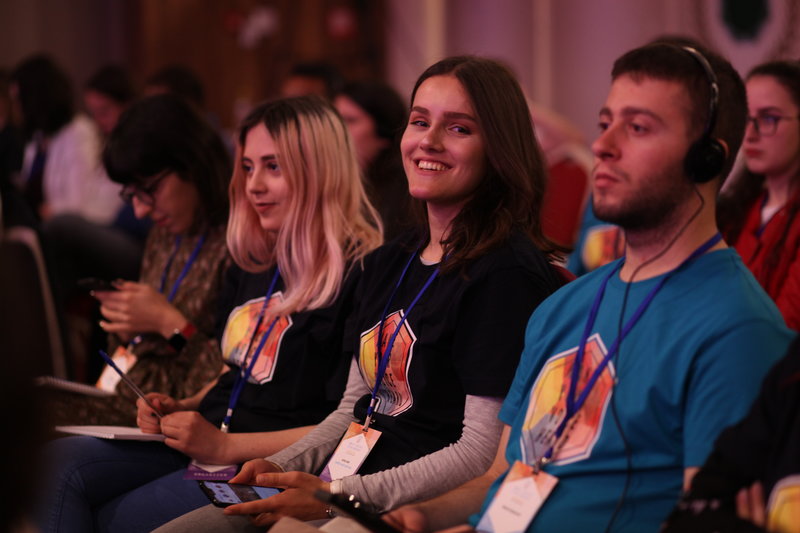
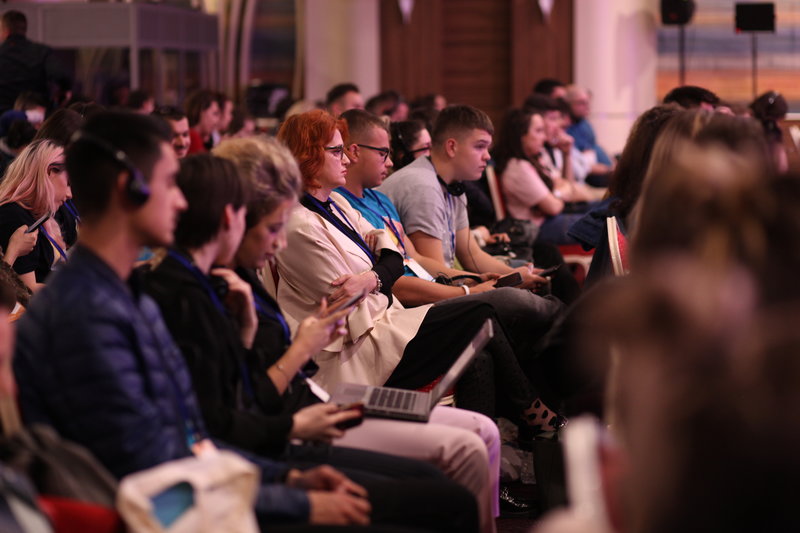
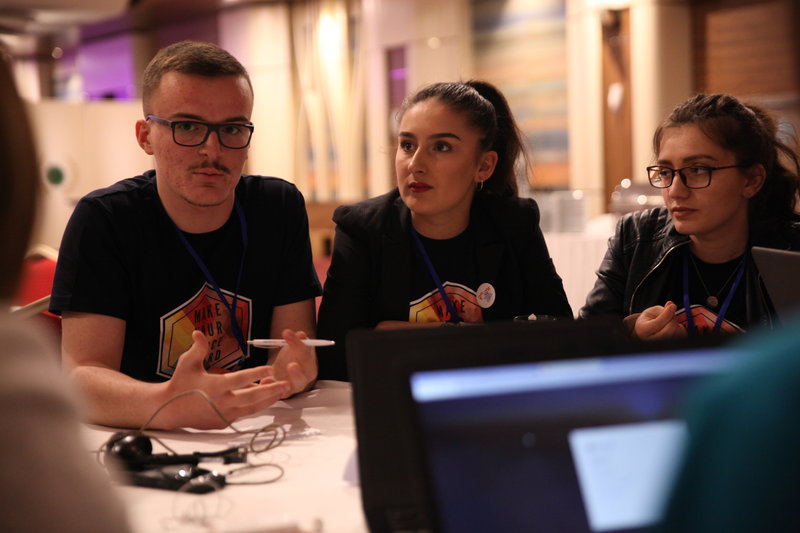
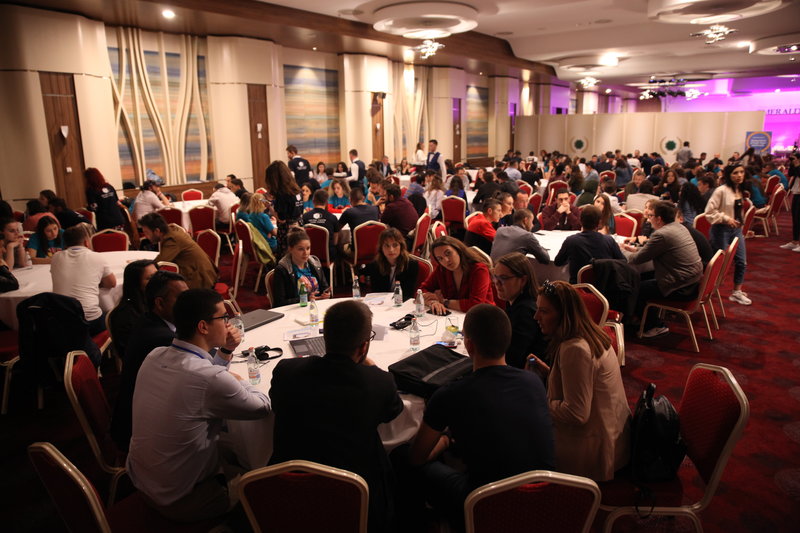
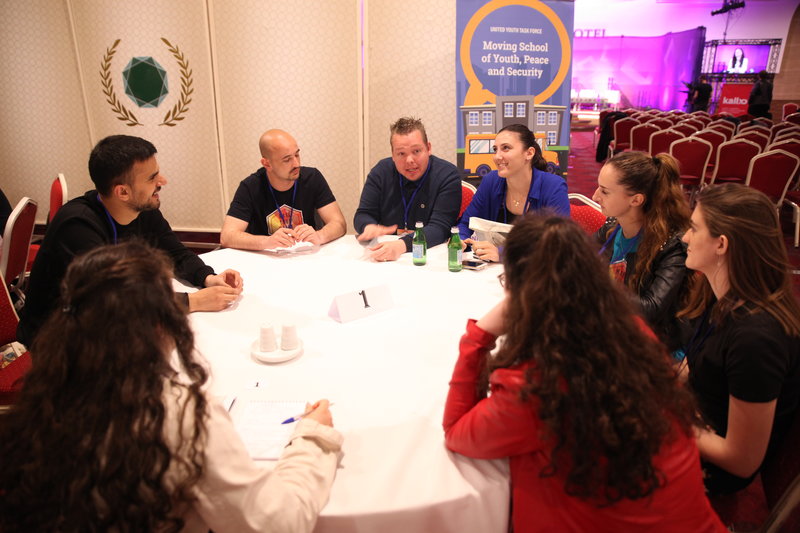
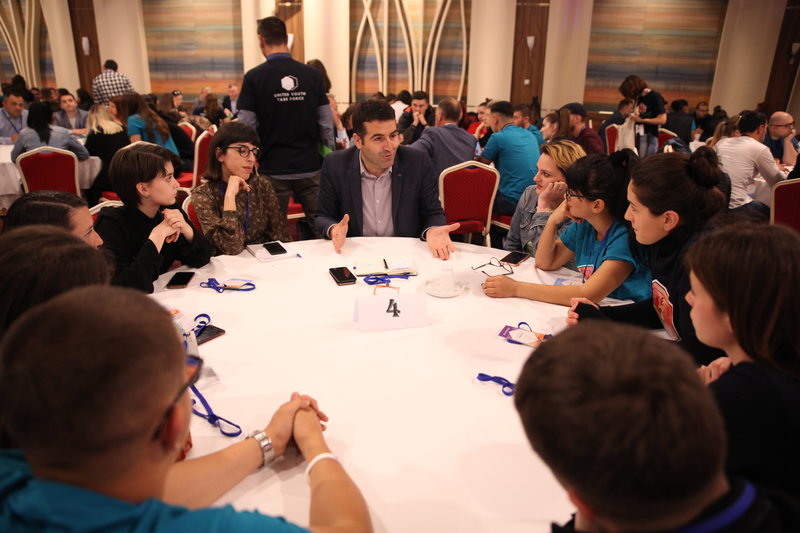
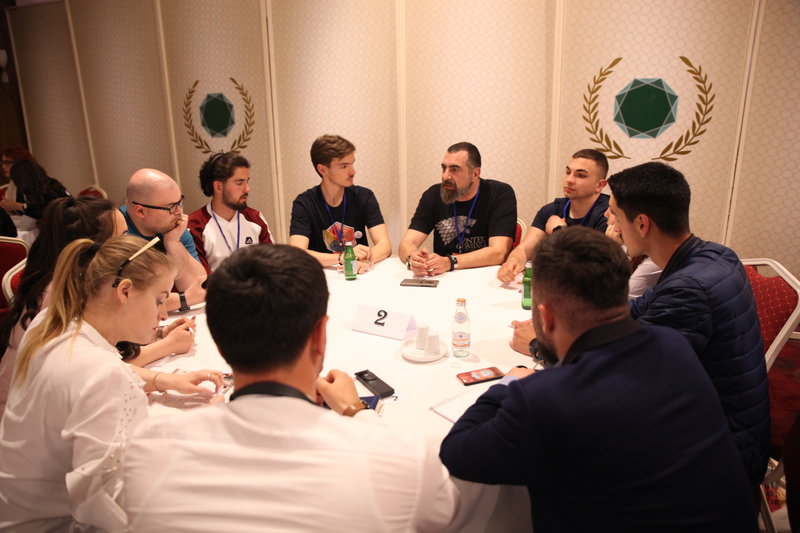
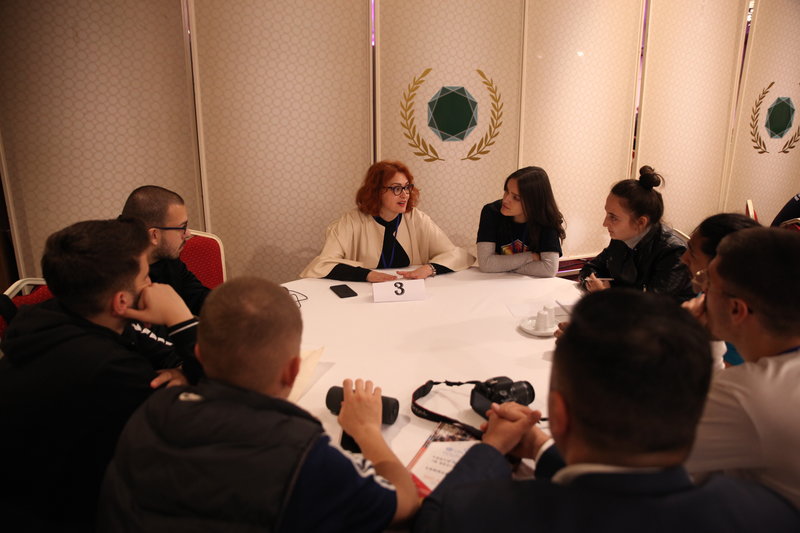
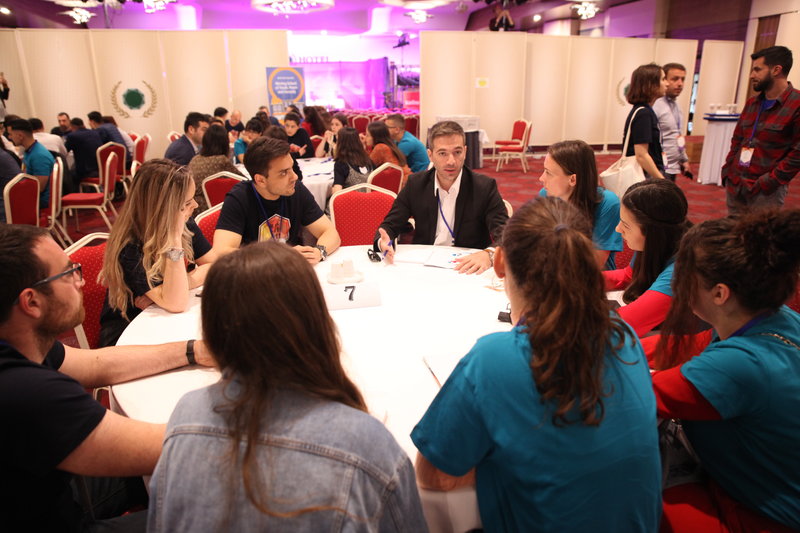
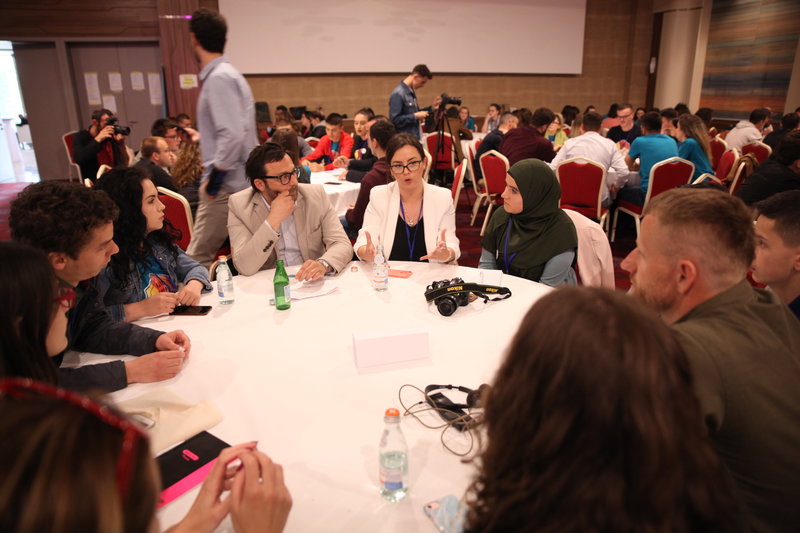
 UN
UN United Nations Peacekeeping
United Nations Peacekeeping





